Digital Ethics places the human being and the human societies at the center of any reflection on innovation and its consequences in the digital sphere, including the use of information science, technology and artificial intelligence.
A national committee dedicated to Digital Ethics
In July 2019, the French prime minister assigned the president of the French National Consultative Committee on Bioethics (CCNE, created in 1983), the mission to launch a pilot initiative dedicated on Digital Ethics. This request came as an integral part of the French national strategy for artificial intelligence. It is in line with the recommendations of Cédric Villani’s report “For a meaningful artificial intelligence, towards a French and European strategy”. It also follows CCNE’s Opinion 129 that proposed “to play a role in helping to set up a Digital Ethics committee focusing on issues in the field of information and communication technologies’’.
This French National Committee for Digital Ethics (FNCDE) shall “submit initial contributions on the ethics of digital sciences, technologies, uses and innovations and determine relevant equilibria for the organization of public debate on digital ethics and artificial intelligence’’. It was also given the task of raising awareness, informing and assisting individuals, companies, administrations, institutions, etc., in their decision-making process. FNCDE will work in conjunction with such stakeholders as CNIL (the French Data Protection Authority), Inria (the French Research Institute on Informatics and Applied Mathematics), CNRS (the French National Center for Science Research), French Universities, the French Academies of Science and Technology and the French National Digital Council. It will also liaise with other French and foreign ethics committees.
Placed under the CCNE aegis and hosted on its premises, FNCDE operates on a similar model. It has a pilot status and will propose a recommendation for the formation of a permanent body in early 2021. It is currently composed of 27 members from different disciplines: from IT specialists working in public or private research to philosophers, medical doctors, lawyers, and members of civil society. Workgroups tasked with preparing FNCDE opinions can include external experts.
The committee has already been seized by the Prime Minister to give opinions on the ethical issues concerning three specific topics of digital applications using in particular machine learning: 1) Conversational agents (chatbots); 2) Autonomous cars; and 3) Medical diagnosis and health AI. As the CCNE, the FNCDE can also seize itself on other topics, going beyond the topics submitted to it by the French Government.
Why Digital Ethics now?
Though it has taken millenniums to be recognized as such, information is now identified as important as matter, energy or life. The sciences and technologies of information have mainly been developed since the second half of the 20th century and they have profound consequences on humans because we are biological information processing systems, even if of course we are not only that. The biological information processing systems, that we are, and the digital ones, that we have developed, are interacting, collaborating and combining for the best but sometimes not for only that. This makes it crucial for all of us to think about the values that these uses and interactions carry. Thinking about our positioning on value hierarchies, along the way, based on experience as well as personal and collective reflection is central for ethics.
How the digital information processing systems we have developed and that are becoming more and more sophisticated are challenging such values as human dignity, privacy, empowerment, justice, fraternity, is becoming a key question. Digital Ethics is now a crucial issue in a global world where data, information and knowledge play such a central role is our daily life and in our societies. In this context the main goal of the FNCDE is to help organizing the thinking on Digital Ethics in France in strong coordination with European and international institutions and initiatives.
How the digital information processing systems we have developed and that are becoming more and more sophisticated are challenging such values as human dignity, privacy, empowerment, justice, fraternity, is becoming a key question. Digital Ethics is now a crucial issue in a global world where data, information and knowledge play such a central role is our daily life and in our societies. In this context the main goal of the FNCDE is to help organizing the thinking on Digital Ethics in France in strong coordination with European and international actions.
Digital Ethics for all
Ethical issues that are raised by the development of digital sciences, technologies, uses and innovations, concern everyone, even the “least-connected” of us. The digital evolution offers formidable opportunities at the individual and collective levels with deep impacts on humans and their organizations. Today to produce and supply electricity, to manage water, to design and operate airplanes, to communicate, photograph, talk to each other, etc., we make a strong and often very clever use of digital sciences and technologies. In this context, all machines, networks, protocols, algorithms and software at the kernel of the digital objects embed values and design choices: what are they? who has decided about their hierarchy? how are they implemented? Many situations that we can experiment every day when using a smartphone or when interacting with a digitalized administrative process make Digital Ethics a subject for everyone. Therefore, the second main goal of the FNCDE is to provide all society stakeholders with opinions to allow them to better understand issues and to help them making their own opinion. Finding appropriate ways to include all stakeholders in the elaboration of opinions is a challenge.
Digital Ethics, law and regulation
Ethics is not law and if the two are quite related, they might sometimes have complex relations and follow different paths that may lead to opposite views. Regulations and laws are designed at the political level in an independent way and the role of ethics in this context is to provide the legislator or the regulator with views, analyses and opinions on the ethical issues at stake. This rich and elaborated discussion between ethics and law is universal and not proper to the digital field. What makes in this context the originality of digital sciences and technologies is the current impressive speed of development as well as the specificity due to information processing. The fact that code is law, as seminally stated by Lawrence Lessig, so as the applications deployment speed towards millions or even billions of humans or of digital devices, challenge regulators and legislators in multiple ways. In the digital domain particularly, the de facto standards impose themselves on normalization, regulation and even law. In this context, ethics shall provide the legislator and the regulator with reflection and value-based analyses of the systems and their potential uses. In particular the FNCDE intends to enlighten the French legislators or regulators and to be useful to European and international debates on these issues.
Digital Ethics at the European and World levels
Thinking globally
These statements are attributable only to the author, and their publication here does not necessarily reflect the view of the members of the AI-Regulation Chair or any partner organizations.



